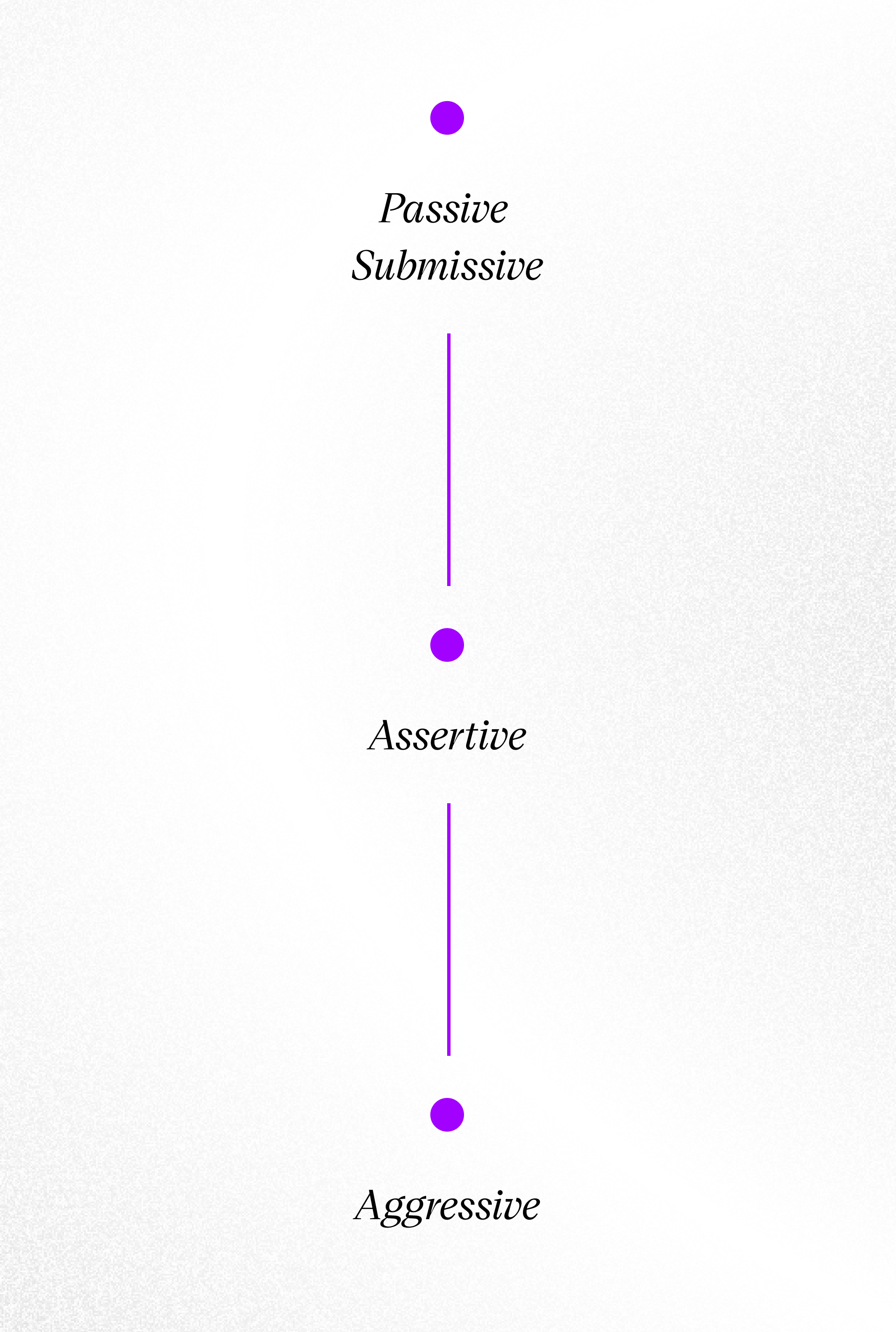March 19th, 2020 | by Jacek Fiałkiewicz
How to Provide Feedback?

Table of contents
Why is the ability to provide efficient feedback so important? Because each of us is part of a larger social system: family, team at work, group of friends. Being part of these mini-communities, we always have expectations from other people – from basic ones, e.g. to be treated with respect, to more complex ones, e.g. I want my son to behave in a certain way towards other children and adults. In order for our expectations to be met, we must be able to express them effectively. For this reason, providing feedback is, inter alia, so important.
In addition, we are often able to see that our friend, colleague or family member is doing something in nonoptimal or ineffective way. Being an efficient feedback provider, we are able to help – by suggesting a better way to deal with this problem (minimizing the risk that our friend will take it wrong, take offense, etc.)
Efficiently provided feedback significantly increases the chance that we will get what we want and that we will be able to realistically help our loved ones and colleagues. The stakes are so high!
You and People like a network of neurons
The ability to provide feedback is associated with a general style of communication that we can describe based on the spectrum:
- Passive/Submissive style characterizes people who are very stressed during the confrontation with another person. Therefore, they avoid most confrontations and are extremely polite to others. Main priority for people with passive style is to be liked. They often suppress their expectations and do not get what they want, because they cannot talk about it assertively. If you are closer to this style, you probably do not provide enough feedback to others. The problem, however, is that your expectations are often unmet. You feel a bit of bitterness – you are so kind, and the world treats you so badly. Your loved ones, on the other hand, often feel lost because they do not know if everything is OK or completely not. Small problems in relationships with others are not solved. They grow in silence, until eventually they get out of control or they weigh you down, taking away the joy of life.
- Assertive style is the golden mean – you can assertively communicate your feelings and expectations as well as enforce desired changes from others. At the same time, you have enough empathy that you do it without threatening relationships. You understand yourself and your expectations well, giving a lot to others and boldly asking for what you want. In addition, you want to be respected and you respect others.
- Aggressive style is the opposite of submissive style. You talk and think about your needs without considering the feelings of others. You get angry easily, dominate over another person in the discussion. In addition, you can be harsh and unpleasant to others. You can effectively enforce what you want, but at the same time you destroy relationships with other people. Feeling that you are better than others, you want to control them. You reach your goals at the expense of others, therefore you hurt people who avoid you or want to get back in time.


If you are weak in providing feedback, regardless of whether it is submissive or aggressive style, you are not optimal in cooperation with others. It is like a neuron that either does not forward the signal or “shoots” non-stop – in both cases you act to the detriment of yourself and others. Now imagine a nervous system composed of such not optimally functioning neurons…
The ability to provide feedback is of great importance for your good relations with others. It is also a necessary foundation for building healthy organizations, where every person is aware of their expectations, can openly and precisely express them and then negotiate with another person an arrangement in which the needs of both parties will be maximally met.
The more you are ready to conduct difficult conversations, the easier your life will be.
How to provide feedback
Psychologists and trainers are surprisingly unanimous about the basic rules of providing feedback. Follow them and your feedback should not fall.
Therefore, dear Padawan:
- Before you provide feedback, make sure your intentions are “pure” – do you really want to help someone? Make sure your intention is to improve the behaviour of another person, not to express your own emotions, for which feedback is an excuse. If your intention IS to express your emotions, do it BEFORE providing feedback. Tell another person how you felt because of what he/she did or did not do. If you feel strong emotions, start with them, using I message – “I felt bad, I felt sorry, I got angry because [description of specific behaviour]”.
- Do not assume that the intentions of the interlocutor are bad; if you do it, your interlocutor will notice this, and he/she will not want to listen to you. Always use the Hanlon’s razor – if you can attribute some behaviour to inattention, ignorance and other “innocent” circumstances, then this is a more likely explanation than bad intentions. Let your interlocutor feel that you are on his/her side, but at the same time tell exactly what he/she should improve – without softening it too muchetc. Treat him/her like a mature person who can be told clearly what is going on. Keep a neutral, matter-of-fact tone, without blames.
Never attribute to malice that which is adequately explained by stupidity.
Robert J. Hanlon
- Provide your feedback as soon as possible, preferably immediately after the observed behaviour.
- Feedback should relate to specific behaviour, not to the overall characteristics of the individual. General characteristics of the type: “You are such a lazy, rude etc.” or “you always”, “you never” is the best way to cause a quarrel – and is the exact opposite of how feedback should be provided. So, remember – refer to SPECIFIC BEHAVIOR – “during the last meeting you said …”, “in this email you wrote …”. “In this presentation on this slide…”. Refer to facts – it is difficult to deny facts. You can interpret facts in another way, you can’t deny them;
- Explain the consequences of behaviour– it can be your emotions or emotions of other people, e.g. “because you did not provide me with data on time, I could not make a report, I was stressed, and my boss was angry at me”. This part is about expanding the horizons of the person you provide feedback to. Your teammate or partner did something and it caused consequences (e.g. your emotions) – so you want to make him/her aware of it. You treat him/her like an adult, but he/she is not omniscient. Therefore, you explain your perspective to him/her or provide information about the objective consequences of his/her choice or behaviour.
- Present your expectations regarding a change in behaviour in the most precise way. You can skip this point if the matter does not concern you directly. However, if it concerns you, prepare for the conversation by understanding very well what exactly you expect from the interlocutor. What exactly will make you happy in a given situation. What specific behaviours. We often do not know what exactly we expect from other people. We feel some discomfort, insufficiency, but we are unable to describe the specific change we expect. Before providing feedback, you have to do your homework and be ready to describe very precisely what you expect. The vaguer it is, the greater the chance that your interlocutor will not do anything about it. Specific words are always in favour of actions, and uncleanness refrains from actions.
- Show the consequences of not meeting your expectations. This is not always necessary, but before you provide feedback and present expectations, think about what you will do, if expectations are not met despite your request. When you are ready to reach for the sword, you have to use it less often.
Can it not be easier?
It can be! If you want to start providing feedback better, make friends with the acronym PBCEY!
It is a simple and pleasant framework for providing feedback. PBCEY means:
- Purpose
- Behaviour
- Consequences
- Expectancy
- You?
Purpose – you start the conversation by communicating its purpose – that is, you announce that you want to provide feedback.
“Listen Jon, I would like to talk to you about the last call with a client.”
Behaviour – you can accurately describe your interlocutor’s behaviour:
“When a client talked about his/her ideas for new functionalities in the system, you immediately said that it would not be a big thing.”
Consequences – you say how this behaviour has consequences for you, the team, the project:
“Because of this, when we give the final quote, the client is often surprised why it costs so much, since we told him/her that this is not a big thing. I have to face the suspicion that we want him/her to pay more, and it is more difficult for me to build trust between us.”
Expectation – explain very precisely what is expected from a person or suggest a direction of change, if the matter does not concern you directly. However, if the thing is about you, be as specific as possible when you say what you want:
“I am asking you, therefore, to not comment on the workload of new ideas in any way during initial discussions with client; if the client asks about it, say that he/she will get the information after we price it as a whole team – you cannot say anything more, because there may be some dependencies you do not know about at the moment. ”
PBCEY gives you a simple framework for good feedback. It is like a basic jazz standard – you have to know it all through, even if you prefer to improvise on a daily basis.
Go into the world!
Applying the above rules is especially pleasant when you provide positive feedback. People often treat positive comments about themselves as a kind of politeness, rather undeserved. It is completely different when your compliment complies with PBCEY – you will precisely describe what behaviour you like and how it affects you or the team. Such precise positive feedback is extremely effective in strengthening the good behaviour of people around us. So, train providing feedback primarily on these positive situations. Be alert like a falcon looking for mice in the field, and when you see something positive in your colleagues, provide positive, precise feedback. Always be honest with it. Believe me, people really need and appreciate it.
Sources: This article was inspired by numerous other articles, including from Officevibe website. I also used knowledge from the MBSR course at Tomasz Kryszczyński, who I highly recommend (and who coined the first version of PBCEY).


